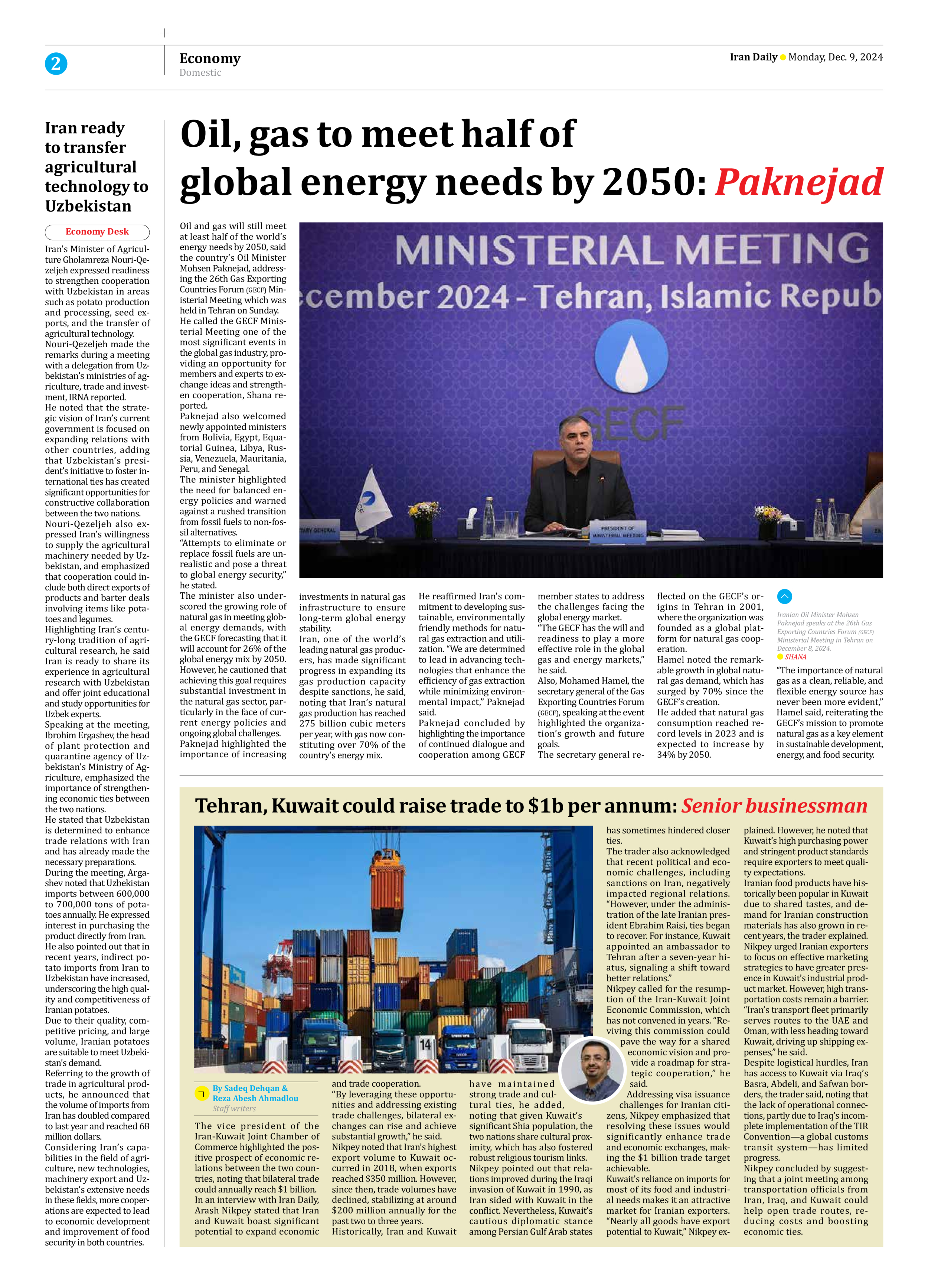
Iran ready to transfer agricultural technology to Uzbekistan
Iran’s Minister of Agriculture Gholamreza Nouri-Qezeljeh expressed readiness to strengthen cooperation with Uzbekistan in areas such as potato production and processing, seed exports, and the transfer of agricultural technology.
Nouri-Qezeljeh made the remarks during a meeting with a delegation from Uzbekistan’s ministries of agriculture, trade and investment, IRNA reported.
He noted that the strategic vision of Iran’s current government is focused on expanding relations with other countries, adding that Uzbekistan’s president’s initiative to foster international ties has created significant opportunities for constructive collaboration between the two nations.
Nouri-Qezeljeh also expressed Iran’s willingness to supply the agricultural machinery needed by Uzbekistan, and emphasized that cooperation could include both direct exports of products and barter deals involving items like potatoes and legumes.
Highlighting Iran’s century-long tradition of agricultural research, he said Iran is ready to share its experience in agricultural research with Uzbekistan and offer joint educational and study opportunities for Uzbek experts.
Speaking at the meeting, Ibrohim Ergashev, the head of plant protection and quarantine agency of Uzbekistan’s Ministry of Agriculture, emphasized the importance of strengthening economic ties between the two nations.
He stated that Uzbekistan is determined to enhance trade relations with Iran and has already made the necessary preparations.
During the meeting, Argashev noted that Uzbekistan imports between 600,000 to 700,000 tons of potatoes annually. He expressed interest in purchasing the product directly from Iran.
He also pointed out that in recent years, indirect potato imports from Iran to Uzbekistan have increased, underscoring the high quality and competitiveness of Iranian potatoes.
Due to their quality, competitive pricing, and large volume, Iranian potatoes are suitable to meet Uzbekistan’s demand.
Referring to the growth of trade in agricultural products, he announced that the volume of imports from Iran has doubled compared to last year and reached 68 million dollars.
Considering Iran’s capabilities in the field of agriculture, new technologies, machinery export and Uzbekistan’s extensive needs in these fields, more cooperations are expected to lead to economic development and improvement of food security in both countries.







